Publié le
Dernière mise à jour de cette page le
Today, the website of the Citizens’ Summit on the Information Society (CSIS) was effectively off-line for all web users in Tunisia. It appears that Tunisian authorities have started to intensify their crackdown on legitimate initiatives related to the World Summit on the information Society (WSIS). Blocking the access to the www.citizens-summit.org is the latest in a series of measures introduced to silence voices critical of the government and its human right record.
Today, the website of the Citizens’ Summit on the Information Society (CSIS) was effectively off-line for all web users in Tunisia. It appears that Tunisian authorities have started to intensify their crackdown on legitimate initiatives related to the World Summit on the information Society (WSIS). Blocking the access to the www.citizens-summit.org is the latest in a series of measures introduced to silence voices critical of the government and its human right record.
Tunisia was actually the first Arab nation to have access to the internet, back in 1991. Unlike many other Arab countries, Tunisia granted a monopoly over internet services to one state run company in order to best exercise control over internet use.
This control has been growing over the years and many information sites covering WSIS from a civil society perspective, especially those maintained by Tunisians are expected to be barred in the next couple of days.
Sites considered a danger are simply “not found” online.
So today, while the citizens’ summit website went blank for many of the participants in the WSIS negociations about internet governance, most people outside Tunisia could still access the page.
The internet provided Arab opposition groups with an alternative to traditional media outlets. But tenacious activists and journalists fighting to uncover corruption scams and human rights abuses like the electronic magazines Tunezine [http://www.tunezine.com] and Kalima [http://www.kalimatunisie.com] show a
Participants in WSIS are increasingly worried about the Tunisian governments strategies designed at blocking dialogue and pluralistic participation.
Delegates could not access websites from their hotels. Incredibly, even delegates in the exhibition centre where official negotiations are taking place are affected and are puzzled with regards to why the host country would use such online and offline intimidation measures on Tunisians and internationals.
Censorship of the Tunisian internet led the Reporters Without Borders — an NGO working to protect journalists and their assistants worldwide — to issue a press release in July 2003 describing the UN decision to hold the 2005 WSIS in Tunis as a joke, stating that “anyone knowing a little about the situation in Tunisia with the Internet and press freedom generally might be able to laugh about it.”1
Cyber control may be the name of the game for Tunisian nationals working for freedom of expression but the fact that even WSIS events sanctioned by the UN are blanketed by the host nation’s censorship policies sets a bad precedent for what is to be expected from an information society. In Tunis, internet governance rhymes with internet control.
1 BBC on Friday. 6 September 2003. Visited November 14, 2005.
http://news.bbc.co.uk/hi/arabic/middle_east_news/newsid_2240000/2240523.stm


